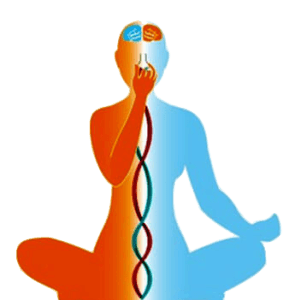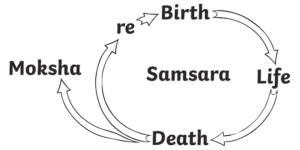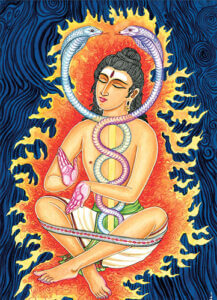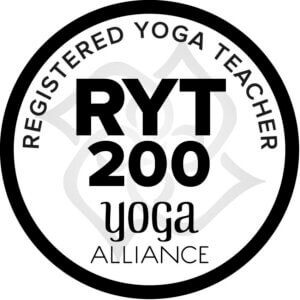200 Hours Yoga Teacher Training Course
Develop a proper understanding of the fundamentals of Yogic Science in a Traditional Yoga Ashram.
Whether you are new to yoga or have some experience, this 200 hours program will allow you to expand your knowledge, improve the quality of your practice, feel the vibrant energy within you and experience new dimensions to your understanding of the meaning of life.
Yoga is a very ancient and unique contribution to the whole world, and it has come directly from the Yogis and Gurus of the Himalayas, thousands of years ago. That is why people come to the Himalayas to study with authentic Masters in our Ashram.
Credentials :
Our 200 Hours Yoga Teacher Training Course in Rishikesh, is registered with Yoga Alliance of America.
How to get the most out of your program :
To learn Yoga authentically, one has to make efforts with LOVE for positive results.
The most important of any training is your own openness and willingness to learn and receive wisdom.
Join us with an open mind and drop any expectations of how things should unfold.
Be flexible with yourself, with other students, and with teachers.
What will you learn ?
This program will not only teach you how to become a yoga teacher, it will help you to resolve many kinds of obstacles you might be experiencing in your life. You will become better able to handle your stress, manage your mind, and other spiritual obstacles. You are also going to develop the skills for becoming the master of your own senses and move up to the ultimate aim of Yoga – Samadhi.
Curriculum :
The goal of this training program is to produce qualified and inspiring yoga teachers who are able to draw on their own practice and personal discipline in imparting the yoga experience to others. The curriculum is based on the five points of yoga which can be understood as the practical application of the traditional four paths of yoga. The intensive daily schedule includes two meditation sessions, two yoga classes, two lectures, one hour of service to the ashram community. One day a week is lecture-free.
Asanas (Yoga Postures)
 A daily teaching practice class is devoted to teaching you how to teach Asanas and Pranayama. This class gives you the opportunity to practice your own Asanas and will help to build the good habit of practice. This daily in-depth practice with individual corrections includes:
A daily teaching practice class is devoted to teaching you how to teach Asanas and Pranayama. This class gives you the opportunity to practice your own Asanas and will help to build the good habit of practice. This daily in-depth practice with individual corrections includes:- Sun salutation
- 12 basic yoga postures
- 100 asana variations, from intermediate level to advanced
- Postural alignment
- Deep relaxation with autosuggestion
- Release of blocked energy
- Training sessions for all age groups
Benefits of Asanas:
- Control emotions
- Improve power of concentration
- Rid the body of excess fat
- Enhance physical fitness
- Relieve chronic ailments such as constipation, rheumatism, stomach complaints
- Stimulate circulation
- Stabilise thyroid functions
- Keep muscles youthful and supple into old age
Pranayama :

- Expands capacity of the lungs
- Relaxes the nervous system
- Balances the two hemispheres of the brain
- Purifies the nadis (subtle energy channels)
- Awakens the inner spiritual energy
- Kapalabhati (lung cleansing exercise)
- Anuloma Viloma (alternate nostril breathing)
- Ujjayi, Surya Bheda, Bhastrika, Sitali, Sitkari, Bhramari
- Samanu (mental cleansing of the nadis)
- The three bandhas: Jalandhara, Moola, Uddiyana
Kriyas :
Tratak, Neti, Kapalabhati, Dhauti, Nauli and Basti: six classical purification exercises for the eyes, nose, air passages, oesophagus and stomach, abdominal organs and large intestine. Explanation and demonstration of the exercises and their effects. Individual instruction
Yoga anatomy and Physiology :
- Introduction to the major body systems
- The effects of asanas and pranayama on: the cardiovascular system, respiration, digestion, skeletal and muscular systems, endocrine system
- The eight systems of the body
- Yoga and physical culture
- Diet and nutrition
Karma and Reincarnation :
 The law of action and reaction
The law of action and reaction- The law of compensation
- The law of retribution
- Destiny and self-effort
Teaching Practice :
- How to teach the 12 basic postures and breathing exercises to beginners and intermediate students
- Setting up of a proper environment for class
- General pointers on teaching a class
- Beginners’ Course
- Advanced Postures
- Relaxation
- Detailed correction workshops
- In the second half of the training course, participants will teach each other under the guidance of an experienced instructor
Yogic Nutrition :
- Vegetarianism – for ethical, spiritual and health reasons
- How diet affects the mind
- Proper balance of the main nutrients
- Ayurvedic principles of nutrition
- Healing effects of fasting
- MEDITATION
- Guide to meditation
- What is meditation
- Why meditate
- Physical and mental meditation
- 12-step daily practice
- Effects of and experiences in meditation
- Mantras – spiritual energy in sound
- Mantra initiation (if desired)
Hatha Yoga :
- Ethical and moral principles
- Body – prana (life energy) – mind
- From control over the body to control over the mind and meditation
Raja Yoga :
- Ashtanga – the 8 steps of yoga
- Antahkarana – functions of the mind
- Concentration and meditation
Kundalini Yoga :

- The Absolute and how it manifests itself in nature
- Macrocosmos & microcosmos
- The 7 Chakras
- The awakening of cosmic energy
Bhakti Yoga :
- Kirtan: chanting of classical Sanskrit mantras
- Indian gods and their cosmic meaning
- Arati and Pujas (traditional Indian rituals)
- Chanting opens the heart and purifies the mind. With daily chanting, you develop a strong feeling of devotion and a very pure vibration. In devotional chanting correct pronunciation, devotional attitude and awareness of meaning are all-important.
Karma Yoga :
- Karma Yoga is the practice of selfless service and helps to reduce selfishness and egoism and keeps you fit and healthy and gives immeasurable joy
- You will be asked to do various tasks within the Ashram setting including gardening, cooking, cleaning, office work and any other work necessary for the smooth running of the community
- The law of cause and effect
- Samsara – the wheel of birth and death
- Karma Yoga – selfless service: one hour daily in the ashram community
Jnana Yoga :
- Basic concepts of Vedanta philosophy
- The 7 Bhoomikas or planes of consciousness
- Space, time, causation
- The 3 bodies
- The 3 levels of the mind
- Conquest of death
Satsang :
Satsang means being in companionship with truth with the wise. The course Satsang consists of half an hour silent meditation, half an hour chanting and a talk or reading on aspects of yoga philosophy. It will help you to develop a strong and steady meditation practice and show you the way to peace and happiness.
A high degree of self-motivation is required for all aspects of the course. A basic knowledge of yoga postures and philosophy is helpful but not essential. A sincere desire to learn and openness to the teachings of yoga is required.
The practice and especially the teaching of yoga demand a high degree of self-discipline and purity. To ensure the success of the programme, participants are required to attend all spiritual activities, meditation sessions, lectures and asana classes.
Meat, fish, eggs, black tea, coffee, alcohol, tobacco, drugs and nudity are prohibited during the course as they are counterproductive to the yoga practice. Participants who do not comply with the ashram rules may be dismissed from the course. Unfortunately, it is not possible to cater to personal dietary preferences beyond the yogic-vegetarian meals.
What to bring:
- Comfortable as well as warm clothing
- Notebook, torch (flashlight)
- Sandals or slippers for indoors, walking shoes
- Towel, toiletries
Getting here
Students are responsible for making their own way to the course. Details of how to get there will be sent to you upon registration. Please arrive on the day before the course is scheduled to commence. Departure will be the day after the course finishes. Please do not arrive late or plan to leave early. You may wish to arrive a few days earlier to acclimatise to the new environment or stay longer after the Course has finished. You need to liaise directly with the Ashram to arrange this
Daily Schedule of TTC (except Sundays Holiday):
- 07:00 am: Wake up
- 08.00 am to 10.00 am: Practice of TTC
- 10.00am to 10.30am : Breakfast
- 11.00 am to 12.30 am: Practice of TTC, which is Karma Yoga /Seva/ Service without expectations
- 12:30 am to 01.00 pm… Self Study Part of TTC
- 01.00 pm to 01.30 pm… Lunch
- 03.00 pm to 03.15 pm… Tea Break
- 03:30 pm to 7.30 pm… Theory, Practice of TTC and self study
- 07:30 to 8.00 pm….Dinner
- 009.00 Rest
We wholeheartedly welcome you to join this unique training in Rishikesh, at the foot of Himalaya, at Swami Samarpan Ashram, Samarpan School of Yoga with along natural forest environment and pure Pranic Energy.



